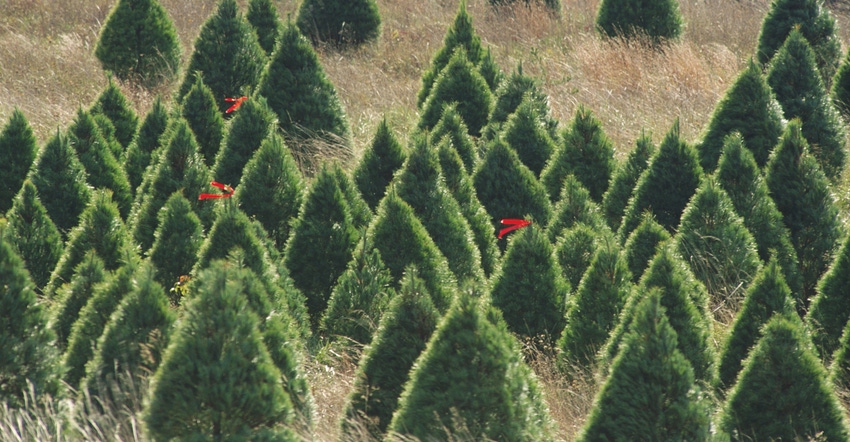December 2, 2019

Gov. Gretchen Whitmer has proclaimed December as Michigan Christmas Tree Month. As a kickoff to the holiday season and to recognize the economic, environmental and social benefits of Michigan’s Christmas tree industry to the state’s farms and communities, Gary McDowell, Michigan Department of Agriculture and Rural Development director, was joined Nov. 20 by Amy Start, executive director of the Michigan Christmas Tree Association, for a visit and tour of Tannenbaum Farms in Mason, Mich.
“It’s great to be at Tannenbaum Farms to celebrate the Christmas tree harvest season,” McDowell said. “Visiting a Christmas tree farm to pick the perfect tree is an important tradition for many people. You not only get a fresh, fragrant, beautiful tree as the centerpiece of your holiday decorations, but you also get the experience of visiting the farm and enjoying a variety of activities like hayrides or sleigh rides, petting farms, Christmas shops, visits with Santa and more.”
Real Christmas trees are a great choice for environmental reasons. They grow on rocky soil typically unsuitable for other crops. They provide extra woodland for animals, create oxygen and take carbon dioxide out of the air, which helps combat global warming.
Christmas trees also can be recycled. The best way to recycle your tree after Christmas is to chip it into mulch, which can be used for landscaping projects.
Michigan grows and sells more than nine major Christmas tree species on a wholesale level, which is more species than any other state. The most popular types of Christmas trees available in Michigan include Scotch Pine, White Pine, Blue Spruce, Black Hills Spruce, Balsam Fir, Concolor Fir, Douglas Fir and Fraser Fir.
In addition to Christmas trees, the industry makes an another $4.1 million in the sales of wreaths, cut boughs, garland and other related items.
“Michigan's integrated network of family farmers, processors, wholesalers and retailers work together to ensure a quality product that is enjoyed by millions throughout our state and country,” Start said. “The industry has a huge impact on our Christmas tree farm families and their rural communities.”
December signifies a national celebration of the importance of the Christmas tree as an agricultural commodity for Michigan and the U.S. In Michigan and throughout the U.S., the Christmas tree industry provides jobs and brings joy to many consumers throughout the holiday season.
Michigan ranks third in the nation for the number of Christmas trees harvested (behind Oregon and North Carolina), supplying about 2 million fresh trees — with an annual net value of $30 million to $40 million — to the national market each year.
There are more than 560 Christmas tree farms growing trees on a combined 37,000 acres in Michigan, ranging from large wholesale farms to choose-and-cut farms to small farms with a few acres selling precut trees.
Christmas trees take six to eight years to reach marketable height. For every Christmas tree harvested, Michigan growers plant three new trees for future harvests.
“The Friday right after Thanksgiving is the unofficial start of Michigan’s Christmas tree season, and most farms are open through Christmas Eve,” McDowell says. “Whether you buy your tree already cut or harvest your own at a Christmas tree farm, I invite you to celebrate the season and to make a fresh, fragrant, farm-grown Michigan Christmas tree a part of your holiday traditions. Thank you for supporting our local farmers and rural communities.”
Visit michiganfarmfun.com for a directory of Michigan Christmas tree farms. The directory is searchable by business name, product and region.
Source: Michigan Department of Agriculture and Rural Development, which is solely responsible for the information provided and is wholly owned by the source. Informa Business Media and all its subsidiaries are not responsible for any of the content contained in this information asset.
You May Also Like




